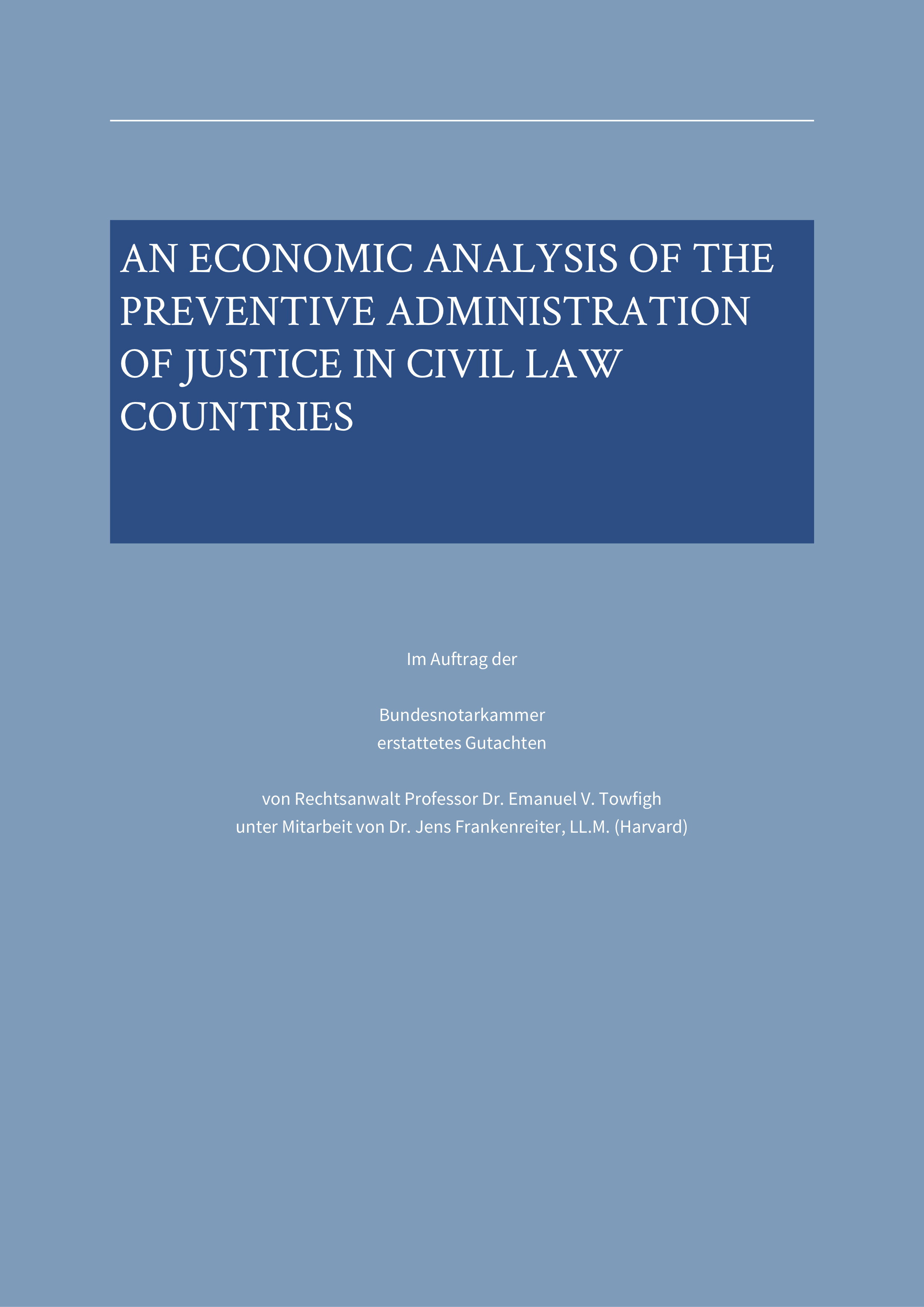Expert Opinion by Emanuel V. Towfigh & Jens Frankenreiter
The document can be read/downloaded here.
This Expert Opinion examines the preventive administration of justice in civil law countries from an economic point of view. In many countries with a civil law tradition, the role of the judiciary is not confined to solving conflicts after they occur. Instead, courts and other government actors assist individuals in structuring their legal relationships in an attempt to help avoid future conflict and increase legal certainty. In some cases, the involvement of such government actors is mandatory. The focus of this Expert Opinion is whether any mandatory form of the preventive administration of justice must be regarded as inefficient “per se”, because it prevents private parties from ordering their affairs in a free—and thereby—efficient manner. It shows that there are market failures that make it unlikely that a system relying exclusively on the market could produce the same quality of information in public registries that is guaranteed by preventive administration of justice in countries like Germany. Therefore, mandating the involvement of government actors in private contracting can be efficient. The Expert Opinion also briefly surveys the empirical literature related to the preventive administration of justice. It finds that, contrary to some claims in the literature, there is no conclusive evidence that preventive administration of justice is inefficient.
Out now! My expert opinion for @Notarkammer on the efficiency of civil law #notaries (legal systems with "preventive administration of justice"), debunking @worldbank #DoingBusiness Reports arguments with standard economic reasoning. #efficiency #diversity https://t.co/8AMgXqZJyR pic.twitter.com/KDiXHCIx9V
— Emanuel V. Towfigh (@etowfigh) May 4, 2020
